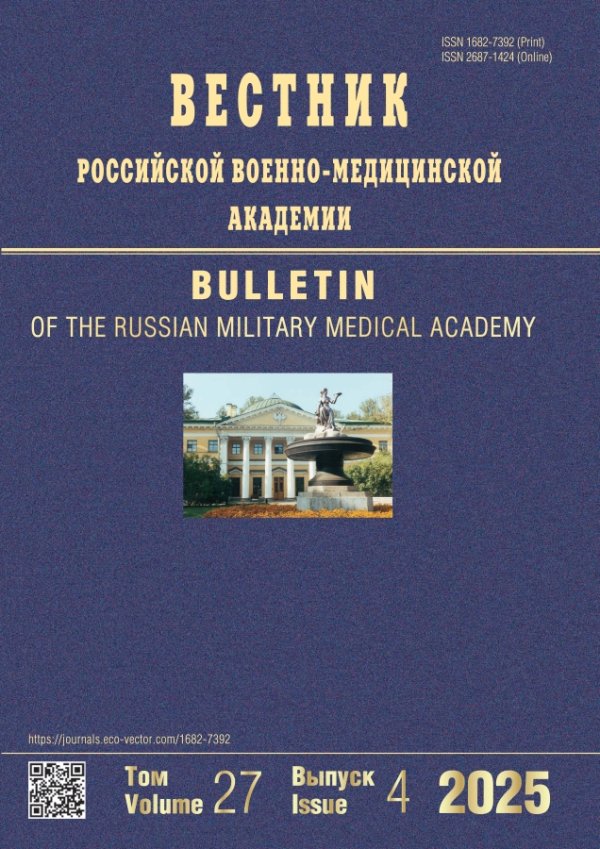Features of emergency medical care outside a medical organization in saint petersburg
- Authors: Karailanov M.G.1,2, Panfilov M.S.1,2, Cherkasov S.N.3, Prokin I.G.2
-
Affiliations:
- Saint Petersburg State Pediatric Medical University
- Kirov Military Medical Academy
- V. A. Trapeznikov Institute of Control Sciences of the Russian Academy of Sciences
- Issue: Vol 25, No 4 (2023)
- Pages: 575-582
- Section: Original Study Article
- URL: https://journals.rcsi.science/1682-7392/article/view/253749
- DOI: https://doi.org/10.17816/brmma568765
- ID: 253749
Cite item
Abstract
The organization of emergency medical care outside a medical organization in Saint Petersburg is analyzed. It has been established that a number of organizational issues related to the interaction between medical organizations and improving the efficiency of the ambulance service have not been fully resolved. Based on the analysis, the main directions of optimization of emergency medical services in this subject are proposed, taking into account a rational and effective approach to calculating the required number of emergency medical teams and their composition. It is shown that the strengthening of operational interaction between medical organizations and the creation of unified control centers for emergency medical teams will meet the needs of the population, create more comfortable conditions for emergency medical personnel. In general, the importance and necessity of this type of medical care is certainly high, and the ambulance service can be regarded as a factor of national security. The issued Order of the Ministry of Health of the Russian Federation No. 388n dated June 20, 2013 “On approval of the Procedure for the provision of emergency, including emergency specialized, medical care” regulated the activities of emergency, including emergency specialized, medical care throughout the territory of the Russian Federation as a separate particularly significant type of medical care and contributed to its further development and improvement. At the same time, there was an approach to calculating the required number of emergency medical teams, taking into account the rational use of available resources. All this testifies to the unified nature of the ambulance, including emergency specialized medical care. Only with the use of this model can maximum accessibility and, therefore, the effectiveness of emergency medical care be provided to patients in the largest districts of the cities of our country. Timely provision of residents of a large city with effective emergency medical care will reduce the statistics of mortality and disability. Providing medical care to the victim in the first minutes after the injury or the development of a life-threatening disease plays the most important role not only in increasing the chance of saving life, but also in a favorable outcome of the disease. To return an able — bodied citizen to the social environment is a task of the state level, since a working person is a guarantee of the security of the state in all senses of this expression.
Full Text
##article.viewOnOriginalSite##About the authors
Mikhail G. Karailanov
Saint Petersburg State Pediatric Medical University; Kirov Military Medical Academy
Author for correspondence.
Email: karaylanov@mail.ru
ORCID iD: 0000-0001-6584-9492
SPIN-code: 7110-9788
Scopus Author ID: 23473000300
ResearcherId: J–1471–2016
Dr. Sci. (Med.), associate Professor
Russian Federation, Saint Petersburg; Saint PetersburgMikhail S. Panfilov
Saint Petersburg State Pediatric Medical University; Kirov Military Medical Academy
Email: mishapetrov@list.ru
ORCID iD: 0009-0003-8933-1534
applicant
Russian Federation, Saint Petersburg; Saint PetersburgSergey N. Cherkasov
V. A. Trapeznikov Institute of Control Sciences of the Russian Academy of Sciences
Email: cherkasovsn@mail.ru
ORCID iD: 0000-0003-1664-6802
SPIN-code: 5392-9889
Dr. Sci. (Med.)
Russian Federation, MoscowIgor G. Prokin
Kirov Military Medical Academy
Email: prokinigor@mail.ru
ORCID iD: 0000-0002-8153-2644
SPIN-code: 3913-2133
Cand. Sci. (Med.), associate Professor
Russian Federation, Saint PetersburgReferences
- Rusev IT, Karailanov MG, Prokin IG, Kuzmin SG. Rendering primary health care in outpatient conditions on example of metropolis. Bulletin of the Russian Military Medical Academy. 2016;(3(55)): 144–147. (In Russ.).
- Karailanov MG, Fedotkina SA, Malikova EA. Organizational and methodological approach to assessing the effectiveness of primary health care at the present stage. In the World of Scientific Discoveries. 2016;8(80):63–80. (In Russ.). doi: 10.12731/WSD-2016-8-63-80
- Rusev IT, Karailanov MG. Otsenka effektivnosti meditsinskoi organizatsii, okazyvayushchei pervichnuyu mediko-sanitarnuyu pomoshch’ // Nauchnaya diskussiya: voprosy meditsiny. 2016;3(34):96–100. (In Russ.).
- Bagnenko SF, Khubutiya MSh, Miroshnichenko AG, Minnullin IP. Skoraya meditsinskaya pomoshch’: natsional’noe rukovodstvo. Moscow: GEOTAR-Media; 2021. 888 р. (In Russ.).
- Votintseva VO, LYu. Puti optimizatsii raboty sluzhby skoroi meditsinskoi pomoshchi. In: Thematic collection of scientific papers based on the results of the Second All-Russian scientific and practical conference with international participation “Aktual’nye problemy upravleniya zdorov’em naseleniya”. N. Novgorod: Izd-vo PIMU, 2019. P. 125–127. (In Russ.).
- Komarov BD, Kuzmichev AP, Balabolkin MI, et al. Skoraya meditsinskaya pomoshch’. Komarov BD, editor. Moscow: Medicine; 1985. 304 p. (In Russ.).
- Vlasova OV. Problemy organizatsii skoroi meditsinskoi pomoshchi. Nauka i Praktika Regionov. 2018;(3(12)):86–91. (In Russ.).
- Bagnenko SF, Miroshnichenko AG, Minnullin IP, et al. Organizatsiya okazaniya skoroi meditsinskoi pomoshchi vne meditsinskoi organizatsii: metodicheskie rekomendatsii. Moscow: GEOTAR-Media; 2015. 56 p. (In Russ.).
- Ivaninsky OI. Main directions for optimizing emergency, first and urgent care to rural population at the regional level. Sotsial’nye Aspekty Zdorov’ya Naseleniya. 2017;(4(56)):4. (In Russ.). doi: 10.21045/2071-5021-2017-56-4-4
- Karailanov MG, Panfilov MS, Cherkasov SN. Ways to optimise the emergency medical service in the conditions of a large city district. International Scientific Research Journal. 2023;8(134):1–6. (In Russ.). doi: 10.23670/IRJ.2023.134.117
- Gorbunov VI, Vozzhennikova GV, Artemenko YuI, Kamardin SV. Organization of emergency and primary medical care for cities’ population (Literature review). Ambulance Doctor. 2017;10:49–75. (In Russ.).
- Miroshnichenko AG, Alimov RR. Comparative analysis of availability and quality of medical care of a doctor of emergency medicine. Emergency Medical Care. 2018;19(3):8–12. (In Russ.).
- Barsukova IM. About improvement of indicators of availability and quality of the emergency medical service. Transbaikal Medical Bulletin. 2016;2:52–58. (In Russ.).
- Tsukerman VN. Questions of ambulance services’ optimization in a large industrial city. Ambulance Doctor. 2016;(7):51–56. (In Russ.).
- Korotkova KM, Shulmin AV. The possibilities of using information technology in management of the organization’s processes of emergency medical care. Avicenna Bulletin. 2018;20(4):376–382. (In Russ.). doi: 10.25005/2074-0581-2018-20-4-376-382
Supplementary files







